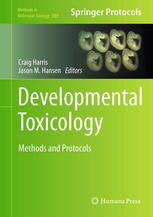

Most ebook files are in PDF format, so you can easily read them using various software such as Foxit Reader or directly on the Google Chrome browser.
Some ebook files are released by publishers in other formats such as .awz, .mobi, .epub, .fb2, etc. You may need to install specific software to read these formats on mobile/PC, such as Calibre.
Please read the tutorial at this link. https://ebooknice.com/page/post?id=faq
We offer FREE conversion to the popular formats you request; however, this may take some time. Therefore, right after payment, please email us, and we will try to provide the service as quickly as possible.
For some exceptional file formats or broken links (if any), please refrain from opening any disputes. Instead, email us first, and we will try to assist within a maximum of 6 hours.
EbookNice Team

Status:
Available5.0
13 reviewsThe discipline of developmental toxicology is an integration of concepts, models, and methodologies based heavily on the superimposition of toxicology principles upon the science of developmental biology. The science of developmental toxicology also borrows from other research areas that are concerned with regulation of cell growth, migration, differentiation and cell death, as such are central to the study of stem cells, cancer, and chronic diseases. In Developmental Toxicology: Methods and Protocols expert researchers in the field detail many of the methods which are now commonly used to study developmental toxicology highlighting the evolution of methods from classical teratology approaches to the dynamic, state-of-the-art molecular methods, systems biology, and next generation models and procedures. Written in the highly successful Methods in Molecular Biology™ series format, chapters include introductions to their respective topics, lists of the necessary materials and reagents, step-by-step, readily reproducible laboratory protocols, and key tips on troubleshooting and avoiding known pitfalls.
Authoritative and practical, Developmental Toxicology: Methods and Protocols is a valuable resource to those planning experiments to investigate consequences of environmental, nutritional, or chemical effects caused during development.